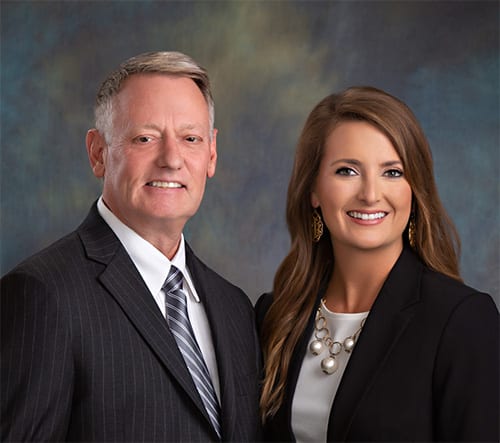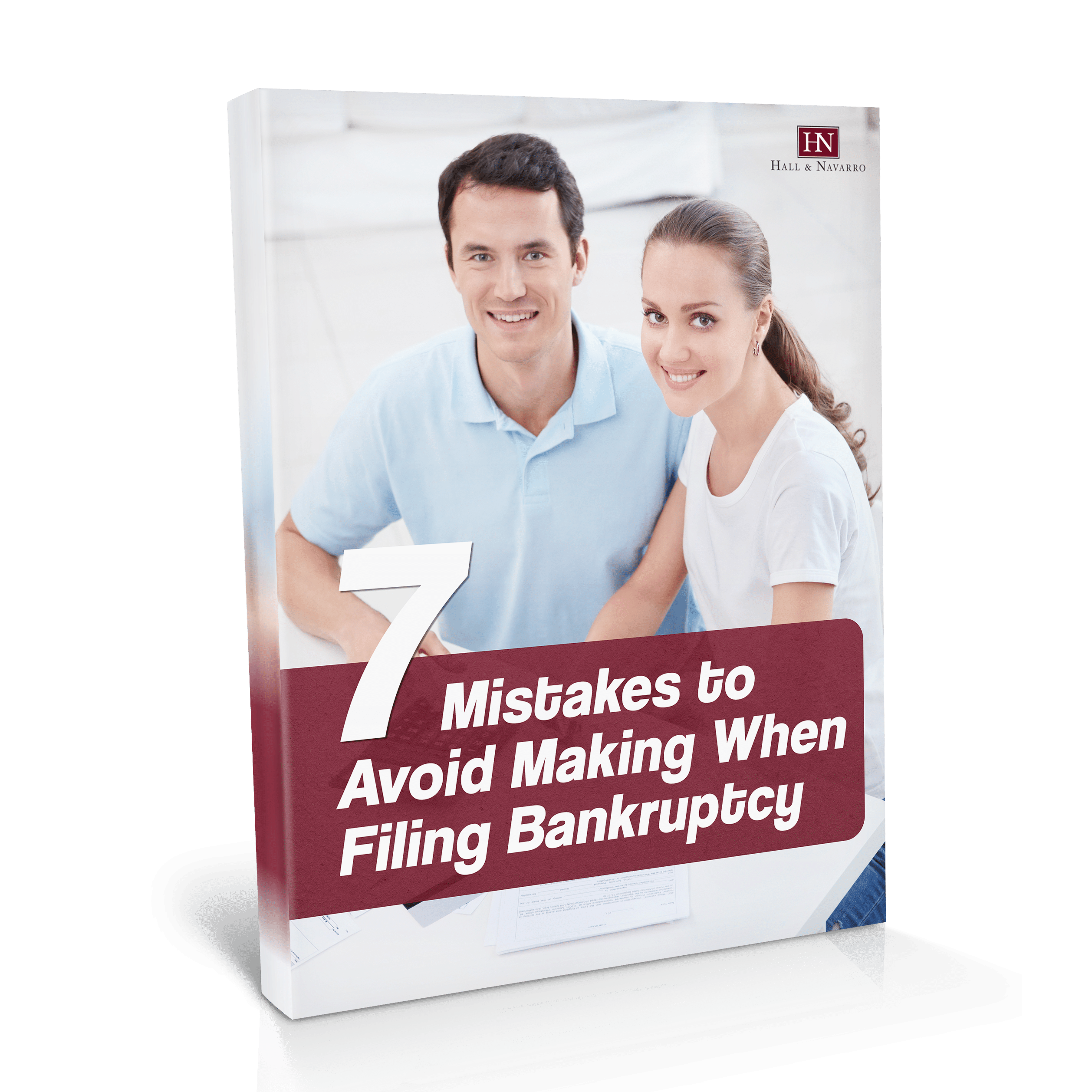Chapter 12 Bankruptcy
Georgia Chapter 12 Bankruptcy Lawyers
Breathe Easy.
We’re With You.
No one can argue with the fact that farming is a tough business. Between the unknowns of weather, fluctuating costs of expenses, and changes in crop prices and trades – it can be a huge financial gamble. And sometimes, when your financial future is in jeopardy, farmers need help.
Let our family handle your family’s needs. It’s time to end the collection calls and past-due letters. Call the Georgia bankruptcy lawyers at Hall & Navarro today to get started.

More Info on Ch. 12 Bankruptcy:
Watch this video.
Considering bankruptcy?
Download our free guide.
There are 7 mistakes you should avoid when filing bankruptcy.

Top Rated Family Lawyers in Georgia
Over 100 5-star reviews on google









How is Hall & Navarro different?
Prepared to Win
No matter what, we approach every case prepared to win. This has been our driving force from day one, and still carries us forward today.
Breadth of Experience
With more than 75 years of combined experience in a variety of practice areas, we are frontrunners of law in Southeast Georgia.
Fearless representation
We put everything forward, and take nothing back. We are a united front, rallying behind and in front of every client.
Who is eligible for a Chapter 12 bankruptcy?
Chapter 12 of the U.S. Bankruptcy Code was first enacted in 1986, during the height of 1980s farm crisis. Designed to be a hybrid of the more complicated Chapter 11 business reorganization and the individual-only Chapter 13 adjustment of debts, Chapter 12 allows “family farmers” (both businesses and individuals meeting certain farm-related asset and income tests) to adjust their debts in a simpler, more debtor-friendly, bankruptcy proceeding. The debt limitation for a farmer is $10,000,000. For a fisherman the debt limitation is lower at $2,044,225 in 2020.
A family farmer can be an individual, an individual and spouse, or a corporation or partnership. Individuals must be engaged in farming, and over half of their total debts and annual gross income must be farming related. For corporations or partnerships, over half the outstanding stock or equity in the corporation or partnership must be owned by one family or by one family and its relatives, the family or the family and its relatives must conduct the farming operation, and over 80% of the value of the corporate or partnership assets must be related to the farming operation. Under the new law, the family farmer’s debts may not exceed $10 million. The family farmer must have regular annual income to ensure payments to creditors under his plan. Income may be seasonal, so long as it is stable.
In order to file for Chapter 12 bankruptcy, you have to:
- operate as a commercial farmer or fisherman
- be in debt up to a but not more than the capped amount
- have half of the debt owed because of the operation of farming or 80% of the debt owed because of commercial fishing
- receive more than half of your gross income from your farming or fishing
What does a Chapter 12 Bankruptcy Plan Look Like?
If you have disposable income, which is categorized as income that does not go towards the cost of living or the cost of your payments for the business/creditors, you are going to have to turn that over to your trustee. This disposable income is going to be used to cover the following:
- costs of operations
- cost of supporting your family
- the 11% fee that the trustee charges for handling payments required in the plan
With Chapter 12 bankruptcy, you may be able to reduce your secured debt, such as mortgages on farms and loans on boats to the market value at the time of filing. Your lenders and creditors are going to have to be paid the value of collateral pledged for this debt, at least. If there is a balance left over that is owed, , that will be looked at as unsecured debt. For secured debt, the payments can extend past the limit of the repayment plan. The interest can also reflect the current market rate.
Please note that the plan for your Chapter 12 bankruptcy is going to have to be in the best interest of the creditors, as they are going to be looking to be repaid as much as they would have had you filed a Chapter 7 bankruptcy. If this is so, the unsecured debt may end up being paid back in pennies on the dollar or no payment whatsoever.
Schedule your consultation.
Speak with one of our dedicated team members by filling out the form below.
More Chapter 12 Info
Keeping Your Farm After A Chapter 12 Bankruptcy
The whole idea behind a Chapter 12 is to give the farmer a good opportunity to save the business. It allows you to stretch out your debts and categorize creditors as to who gets paid when, how, and how much. It allows trustee payments to be made to fund certain creditors. It also allows for you to schedule your payments to correlate with your crop, your government payments, and things like that. The whole idea behind a Chapter 12 is to preserve the farm. It is a farmer reorganization.
What to do before filing a Chapter 12 Bankruptcy
Farming is a very, very tough business, and how anyone makes a living in farming day in and day out, year after year is getting tougher and tougher as years go by.
Really, what you need to do is be sure you have all of your assets listed. Look at your cash flow and meet with your attorney. Choose an attorney who specializes in Chapter 12 bankruptcies to look at how you need to organize your business for the future, so that you can try to anticipate problems. When problems arise, you can then be in a position to address those, if needed, in a Chapter 12 bankruptcy.
Bankruptcy works magic in many situations and especially farming situations dealing with secured and unsecured debts. A Chapter 12 can last five years as far as what you pay the trustee, but there are payments that can be stretched out to 20 to 25 years when it’s especially collateralized by land. You really want to look at the value of your land, the value of your irrigation systems, and your cash flow, and work with your attorney to develop a plan even prior to the filing of the bankruptcy.
Issuing Payroll After a Chapter 12 Bankruptcy
One of the questions that always happens in a Chapter 12 bankruptcy since it is dealing with a business and farming enterprise is whether or not the debtor can issue payroll checks on its payroll account in a Chapter 12. The answer is yes.
You would want to set up a separate debtor in possession of the account for a Chapter 12 bankruptcy, but yes, you can pay your employees in a Chapter 12 bankruptcy pretty much like you always have. There are certain qualifications necessary to be sure that the cash that you’re paying those employees is authorized by the court. That’s one reason that you would want to use an attorney who’s experienced in Chapter 12, who knows the trustee, knows the judges, and knows the proper court procedures to get that done for you.
Resolving Disputed Chapter 12 Bankruptcy Claims in Georgia
One question that a farmer has asked me before was how a disputed claim would be handled in a Chapter 12 bankruptcy. For instance, he had been sued by a fertilizer company that he believed did not deliver all the fertilizer he requested.
A disputed claim can be handled in two ways in a Chapter 12. One is you file an objection. If the creditor files a proof of claim, which is a claim in the bankruptcy, you can object to that claim.
A second way is you can file a complaint in bankruptcy court to dispute the claim. You have avenues in bankruptcy to dispute and to resolve any claims that are filed.
